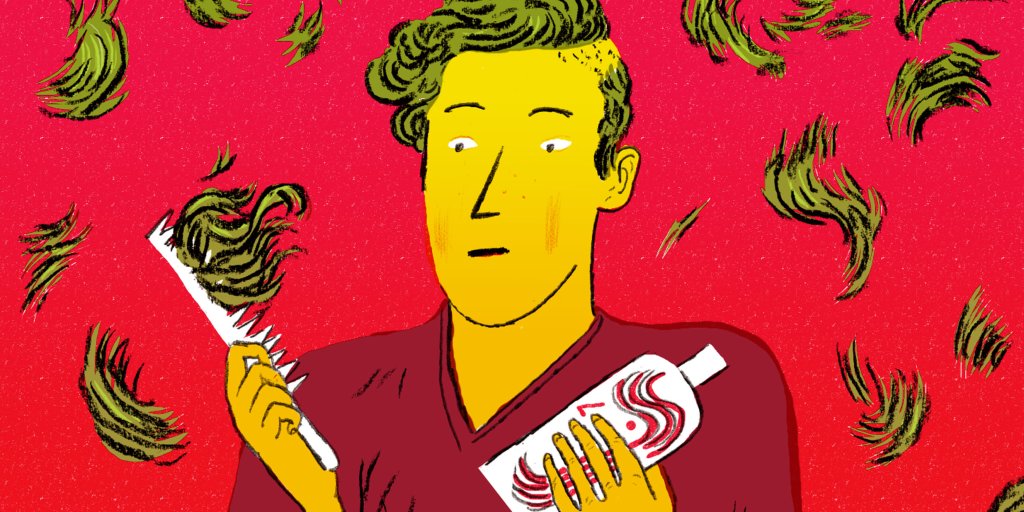US Toll Free : +1-800-897-1053 Call or Fax 9.30 to 5.30 pm EST Mon to Fri.
- Language
- Refer $
- Track Order
- Request a Call Back
- %
- % Coupons and offers
-
0
Your shopping cart is empty!
- Checkout
03/22/2021
Hair fall does not discriminate on the basis of gender. Man or woman, you won't be spared.
There are several reasons and problems that cause hair fall in women. Medical conditions, hormonal shifts, and mental health may all be blamed, but finding the root cause of a problem isn't always easy. Below, we have mentioned some of the most common and known possibilities of hair fall in women.
Note: There are mainly two different hair loss types – one is genetic, and the other is reactive.

Genetic hair loss, well, it is clear from the name that you have it in your genes. In comparison, reactive hair loss is a result of a trigger. It means that it is caused by an internal imbalance or because of an emotional state.
Let's have a look at some of the common triggers of hair fall in women –
Hormonal imbalance: A hormonal imbalance can trigger bothersome health and beauty problems, from adult acne to weight gain. If your hormones are not working as they are supposed to, the consequences will be visible in almost every part of your body, including your hair, as they play an essential role in regulating hair growth.
Stress: It is very much true that stress can impact your hair and not in a good way. Well, it can induce hair loss by increasing androgen levels(Oestrogens - female hormones are 'hair-friendly,' and Androgens - male hormones, not so hair-friendly).
Stress can trigger a lot more problems—for example, scalp problems like dandruff.
The list doesn't end here; your eating routine can be messed up, it can cause digestive system issues, which might negatively impact your hair.
Iron deficiency/anemia: It is a frequent cause of hair loss in women. Your strands will suffer if you don't have enough iron to make hair cell protein.
Hyperthyroidism and hypothyroidism: The thyroid gland helps control the body's metabolism by regulating protein production and tissue oxygen usage. If you have any thyroid dysfunction, be it hypothyroidism or hyperthyroidism, it can affect hair follicles.
If left untreated, hypothyroidism can lead to anemia, which, as discussed, is another disorder that can affect the hair.
Age: It's important to remember that our hair ages and becomes finer as we age. It's a perfectly normal part of getting older.
Hair Loss in Men
Losing hair is not only a concept in women, but men are affected by this phenomenon too. Both men and women have similar hair loss reasons, like hormonal changes, stress events, medical conditions, etc. Let's get into the detailing of what triggers hair fall in men.
Hormonal changes: We think testosterone is to be blamed, at least somewhere, because cells in the scalps of genetically predisposed men turn the vital male hormone into DHT, affecting follicle and stop growing hair.
Medical conditions: Males with medical conditions like high bp, heart problems, diabetes, obesity, and thyroid issues are more likely to get patten baldness.
Stress: Emotional or physical stress can trigger hair fall too.
Medications: Medication of arthritis, anti-depressants, medicine for high blood pressure, etc., are included in the class of drugs that are likely to affect hair growth and leads to heavy hair fall.
You can talk to your doctor about your concerns and figure out a mid-way.
Scalp disorders: There are conditions like ringworm, a fungal infection, and folliculitis caused by a bacterial infection which can lead to hair fall in men.
That's not all; lifestyle choices that you make also determine your hair health. So, it is better to bend more towards a healthy lifestyle.
How to Cure Your Hair Loss?
Now that we have seen what possible reasons can be there behind hair loss, let’s move on towards controlling hair fall.
Change in diet: bring a healthy change to your diet. Start adding more fresh green leafy vegetables (basil, parsley, spinach, etc.) and herbs to your meals. This may reduce the risk of androgenic alopecia.
Consume protein: Eating food rich in proteins might help prevent hair fall as hair follicles are mostly made of protein.
Multivitamins: Vitamin A, B, C, D, iron, zinc, etc., are essential for healthy hair growth. So, if your diet does not contain all of it, then turn towards the supplements.
Washing process: For attaining healthy hair growth, one should have a healthy and clean scalp. Washing your hairs daily can be the key to keeping your scalp healthy but use mild shampoo only as harsh chemical formulas can make the scalp dry and cause hairs to break.
Oiling: Oiling is essential as it keeps hair nourished and helps in deep conditioning. Also, it protects follicles from grooming damage and harmful UV rays.
The takeaway from all this is that if you notice that you have started losing more hair than usual, you definitely should consult your doctor and figure out the root cause behind it so that you can get on with the treatment ASAP. And if your doctor prescribes you medicines, you can get them without any hassles as these days; technology has made it feasible for consumers to order hair loss medications online.
Have a good day, and keep flaunting your healthy hair!
Comments